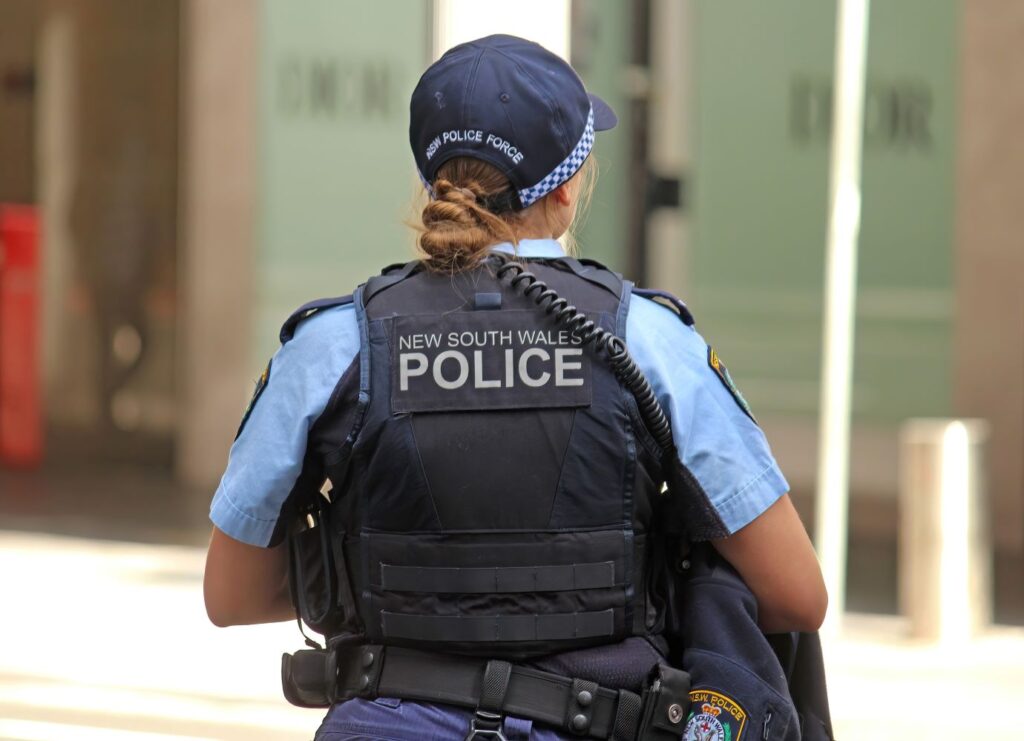An ABC investigation into the NSW Police Force has found a toxic culture where women are subjected to sexism and intimidation. If they complain, they get tangled in a boys’ club that uses fear and retaliation to silence victims.
On top of the stresses of the job where they are dealing every day with violence, crime, and things they can’t ‘unsee’, these women are particularly vulnerable to sustaining a moral injury due to this vindictive system.
What is moral injury?
Moral injury is a deep wounding of the soul. It is the social, psychological, and spiritual response when something or someone goes beyond the limits of an individual’s deeply held values and beliefs.
First responders and Defence members are frequently exposed to trauma. As such, they are more likely to have a moral injury than the general population.
Moral injury can also be caused by abuse or betrayal by individuals and organisations. For example, an organisation might say they will support staff members who injure themselves at work but fail to do so. In the ABC investigation, many police officers told their supervisors they were not coping due to the stresses of the job. Rather than offer support, they were told they had a ‘bad attitude’ and they needed to go back on patrol.
Sometimes, injuries can be compounded. For example, a police officer might experience an injury when they witness the mistreatment of a colleague or community member. When they report it, however, they might be betrayed, demoted, or ostracised by management or colleagues. This was particularly evident in the ABC’s interviews with women police officers.
Interestingly, moral injury is not yet considered a psychological condition. However, it can lead to mental health conditions such as Post Traumatic Stress Disorder (PTSD), or the lesser known Post Traumatic Embitterment Disorder (PTED). It should be noted that all of us feel upset or shaken at times by what we experience or see in everyday life or at work. This does not mean we will develop a moral injury, because it is caused by a deep wound, generally from very traumatic events.
What does moral injury feel like?
Those with a moral injury feel a deep sense of shame and betrayal and experience feelings of unworthiness or dirtiness after seeing or being part of such events. First responders might think they could have done more despite the impossible choices and lack of resources they might have faced in an emergency.
Those with moral injuries can withdraw from their family and friends because of these feelings. They might think they are unworthy of loving relationships. They may even fear contaminating their loved ones because they feel guilty for what they have done or failed to do.
How does moral injury impact family life?
Despite their best efforts to shield them, a parent’s moral injury can negatively impact children’s and teenager’s family life and mental health. Children generally misinterpret their parent’s withdrawal as rejection. They can blame themselves for their parent’s behaviour and even the moral injury.
Also, children might be exposed to their parents’ aggressive risk-taking behaviours, which are often present in those with moral injury. Parents can be overprotective because of the danger they themselves have been exposed to. Children’s worldview is often impacted by their parents. So, their children might also start to see the world as dangerous or that those in authority or government departments and organisations cannot be trusted.
Adding to these challenges is the availability of mental health services for all family members, especially for those in remote communities. The Australian Bureau of Statistics found that 30 per cent of defence members and 50 per cent of veterans live in these communities, as do many first responders. Therefore, there is a need for online resources and support for these families, including their children.
A change of culture is needed
For women to be able to feel safe and respected in the NSW Police Force, a major cultural shift is needed. This echoes the Final Report of the Royal Commission into Defence and Veteran Suicide. As one woman police officer told the ABC:
‘I can’t do this anymore, I can’t. I’m out of fight. Thirty years of fighting and it’s not getting better. In fact, it’s getting worse.”
To ensure we attract and retain women into service positions, we need a safe and respectful work environment that supports workers to speak up.
If you, or someone you know needs support, please find relevant support services below:
Defence and Veteran
- Defence Member and Family Support
- Legacy
- Defence Families of Australia
- Open Arms
- Soldier On
- Mates4Mates,
First Responder
All families
- Kookaburra Kids
- Beyond Blue
- Lifeline
- 13Yarn (Indigenous families)
- Our Herd (for young people 18-30 years)


